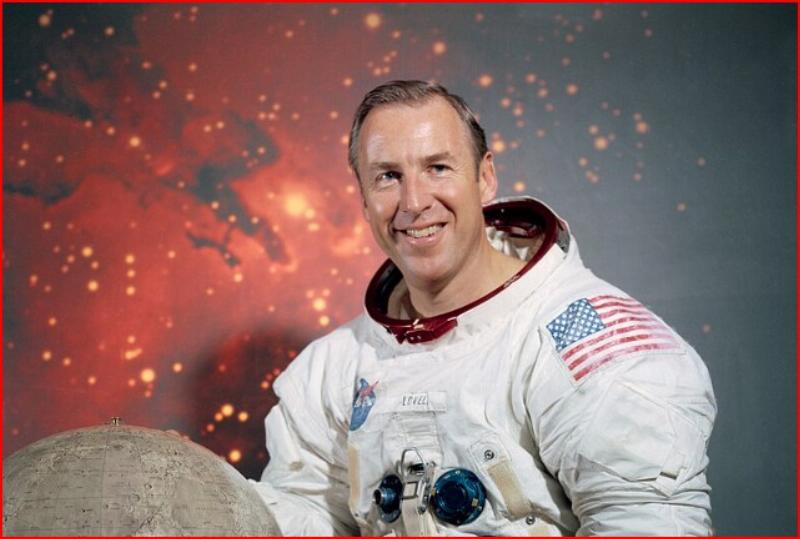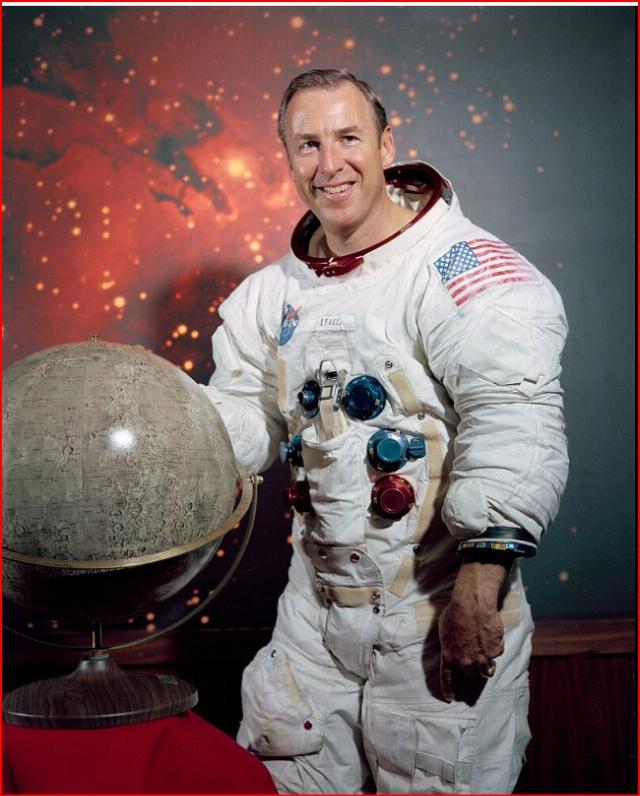


This week, a giant among us has passed.
James Lovell, the commander of the ill-fated Apollo 13 moon mission and one of the astronauts of Apollo 8, died August 7, bringing back memories, all good memories, of America's greatness and his own greatness, in a life heroically lived.
His successful Christmas 1968 Apollo 8 mission, which orbited the moon for the first time, restored hope for our country after a miserable, tumultuous year -- wracked by an unpopular war overseas, fiery race riots, two assassinations, the sense of widespread social disintegration from the hippies and crazed leftists on campuses taking over.
The success of Lovell and his two fellow astronauts traveling to literally another world for the first time, orbiting the moon, seeing its dark side for the first time, and seeing the Earth for the first time from the moon was enough to restore our perspective and hope.
And as commander of the ill-fated Apollo 13 mission, Lovell demonstrated in spades what the Right Stuff is, as a test pilot with the nerves of steel who was able to act with unimaginable grace under pressure, after an unspeakably terrifying explosion struck his spacecraft 240,000 miles from home, and he and his two crew members watched helplessly from the window as the oxygen tanks leaked away.
Incredibly, Lovell managed to resteer the stricken vehicle safely back to Earth -- preventing it from shooting past the Earth, which was one problem, conserving oxygen intended for a few hours to four days, conserving water to keep the electrical systems cooled, jury-rigging an improvised oxygen supply from the command module to the lunar module where the astronauts were holed up in a cold cramped, clammy freezing space intended for two men, going without electricity and having faith that the heat shields and parachutes on the reentering spacecraft would function on the re-entry to Earth.
That he succeeded is unbelievable, that he could even do it is incredible, a hard story to ever imagine succeed given the odds, given the many ways people die in accidents, yet this one was not one that ended in an almost certain death. That one percent window of success was threaded by Lovell owing to his discipline, his calm, his courage, and his confidence, honed over many years as a Navy test pilot, which had been an elite career with a 53% chance of death in his day.
Maybe it was the help of angels in addition to Lovell's good leadership that got them through.
After all, Lovell had read from the ancient Book of Genesis while on the earlier Apollo 8 mission, paying tribute to God's creation of the universe as he looked in wonder at the Earth and moon, in a stunning return to our Judeo-Christian cultural foundation, which made science possible. That recognition of the truth made all the troubles in the U.S. look small in comparison at the time. But it also demonstrated that that true greatness comes from humility to God the Almighty, not idle worship of science or mankind. The first major act in arriving to the moon was to pay tribute to the Creator,
We don't see much of that now, marrying scientific and technological breakthroughs with honoring our Creator, and I can't think of a single modern instance so reverential. But Lovell was of that era that could, and for that, is more oif an authentic hero.
Lovell himself viewed it as NASA's and his own finest hour in this beautiful oral history:
He's simple, forthright, direct and utterly listenable, a man who never bragged or swaggered as some in his field did, and a man who never wasted his time.
One can tell this easily just in the way he spoke to his interviewer, who was very good.
His character was also evident in Tom Wolfe's The Right Stuff where he makes appearances throughout the story as Wolfe ruminates on what exactly the right stuff came down to. Lovell's was a life full of it, a life well lived, a life of excellence, a love of space travel, a heroism we need more of now, and a reverence for his Creator. Every kid in the world needs to study carefully the life of Jim Lovell because in every field of human endeavor, the world needs more like him.
RIP

Image: NASA, via Wikipedia // public domain
